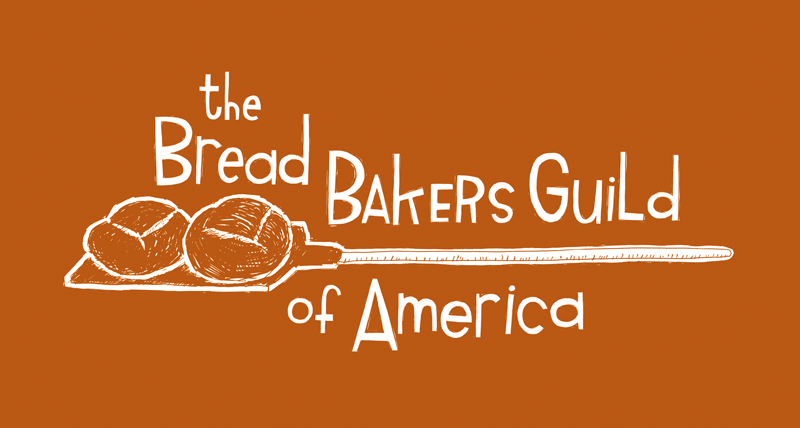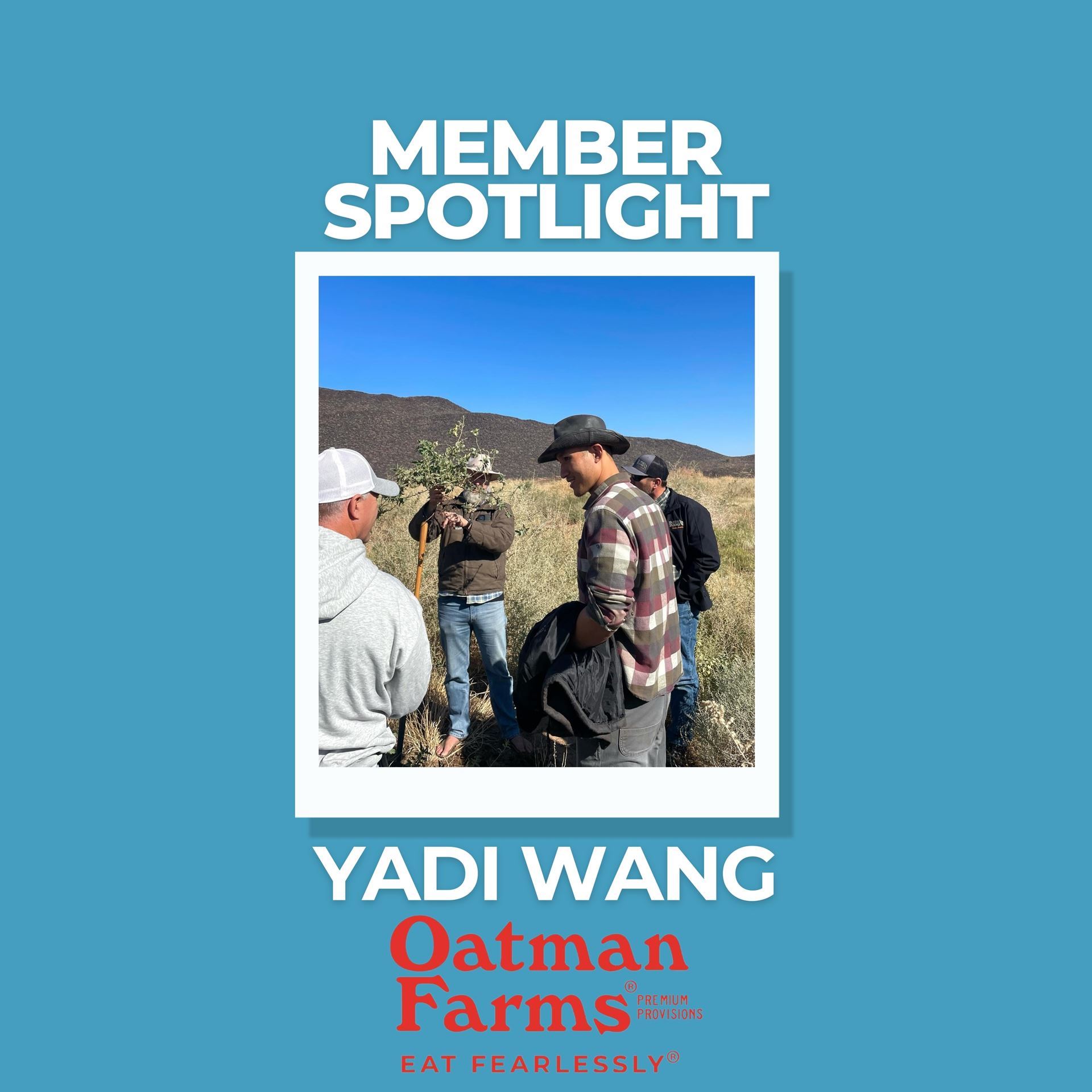
In Gila Bend, Arizona, where Oatman Flats Ranch is located, the average annual rainfall is less than 4 inches. During the summer, temperatures can easily reach 120 degrees, sometimes higher. Conserving water in one of the hottest places in the country is critical for farmer Yadi Wang, Oatman Flat Ranch's General Farm Manager. Yadi recently spoke with the Guild by phone from the fields at Oatman about his background in chemical engineering, and how that led him to farming.
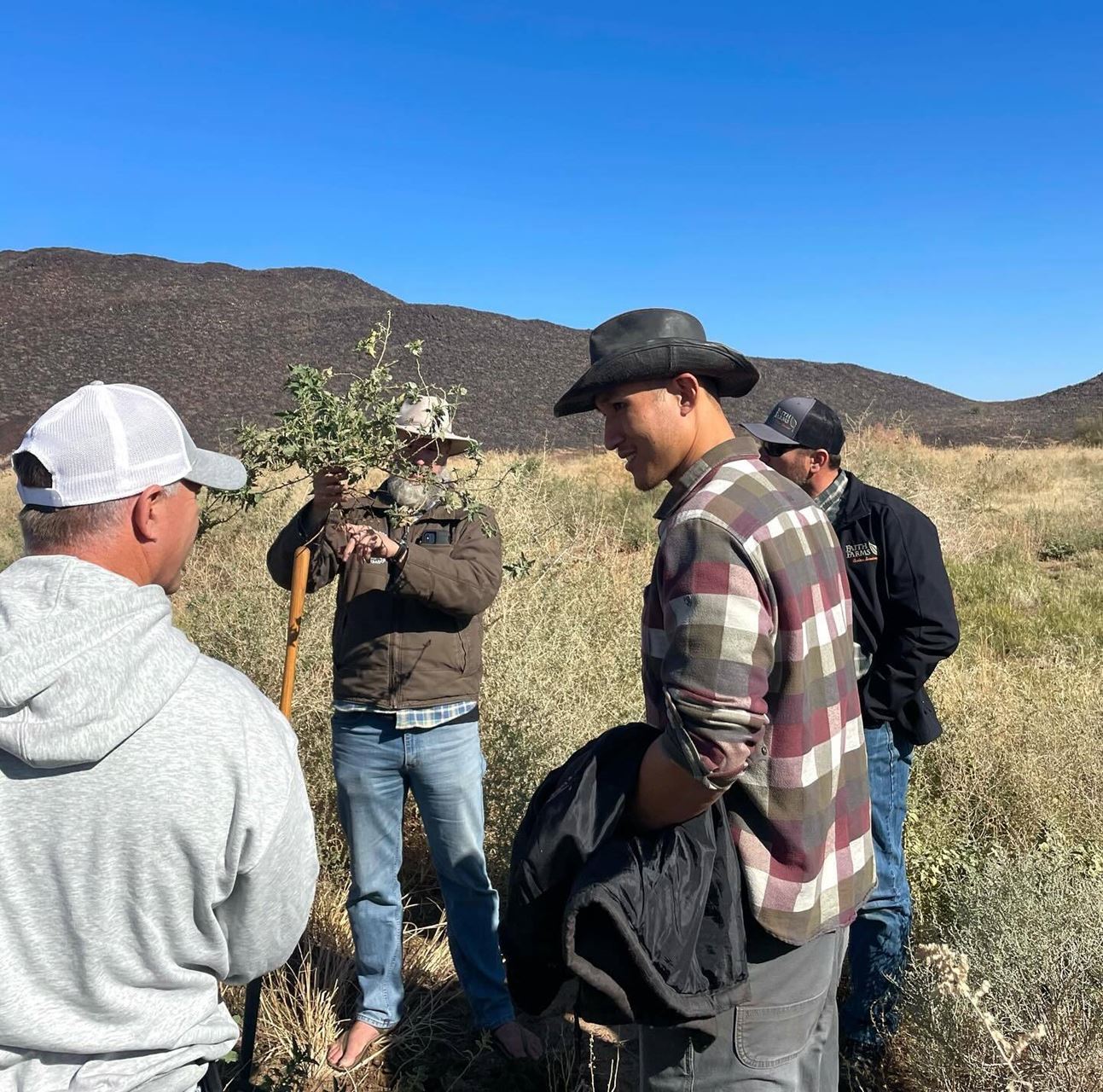
Yadi is a native of China, who arrived in the United States in 2010 to initially play college basketball in California. He ended up getting a chemical engineering degree from the University of Arizona. Before 2015, Yadi says he'd never seen a farm. Then he visited his wife's family farm in Indiana, where her father, Chuck Whitehair, was a sixth-generation farmer.
"I was just mesmerized by the farming field," Yadi said.
Yadi returned to school to study soil and water science, watershed management at a doctoral program in Tucson, where he received his Ph.D., in Agriculture and Life Sciences. Then his father-in-law passed away in late 2016.
"I made a commitment to myself, after I finish my academic career, I will immerse myself in farming," Yadi said.
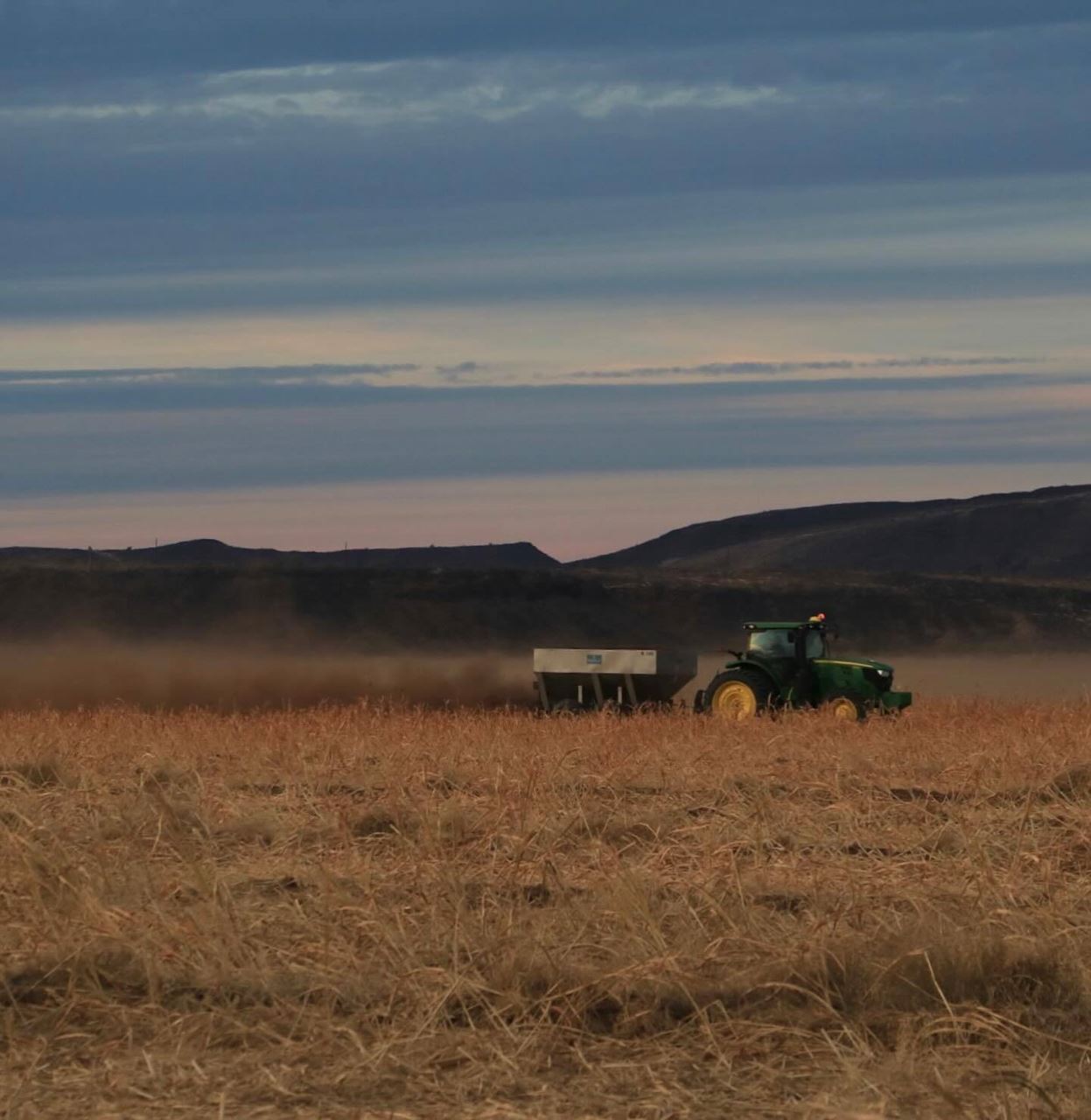
Oatman Flat Ranch owner Dax Hansen's family has owned the land for four generations now. By day, Hansen is a renowned FinTech lawyer. Yadi heard Hansen needed a farmer who knew how to manage water and wanted to explore regenerative agriculture.
"I said you will help me become a farmer, and I'll help you with the landscape," Yadi said.
That was almost four years ago. So far, Yadi and Oatman grow heritage wheat, such as White Sonora, plants accustomed to heat and drought. According to Oatman, each pound of its wheat conserves an average of 700 gallons of water-gallons of water, compared to other commodity crops grown in the area.
"We have over 150 species we brought back to the land," Yadi said. "Taking the ecosystem approach, the life of the human is only one component."
Oatman grows heirloom wheat that require low water utility like Red Fife, White Sonora, and Blue Beard Durum. They also wild harvest Mesquite beans for flour.Yadi looked to the Indigenous community, whose history can be traced more than back 20,000 years ago, for guidance on how food was historically cultivated in the region.
Gila Bend is named after the approximately 90-degree angle in the Gila River, a tributary of the Colorado River. It's situated near an ancient Hohokam village. Not far from the town is the Tohono O'odham Nation's San Lucy district (in O'odham: Weco Ceksanĭ) with a small settlement, San Lucy, along the town.
"We have a saying here in Arizona: the people in the community didn't move; the border moved," Yadi said. "What we call regenerative, what we call sustainable, or even organic, is part of a tradition. It's an Indigenous culture."
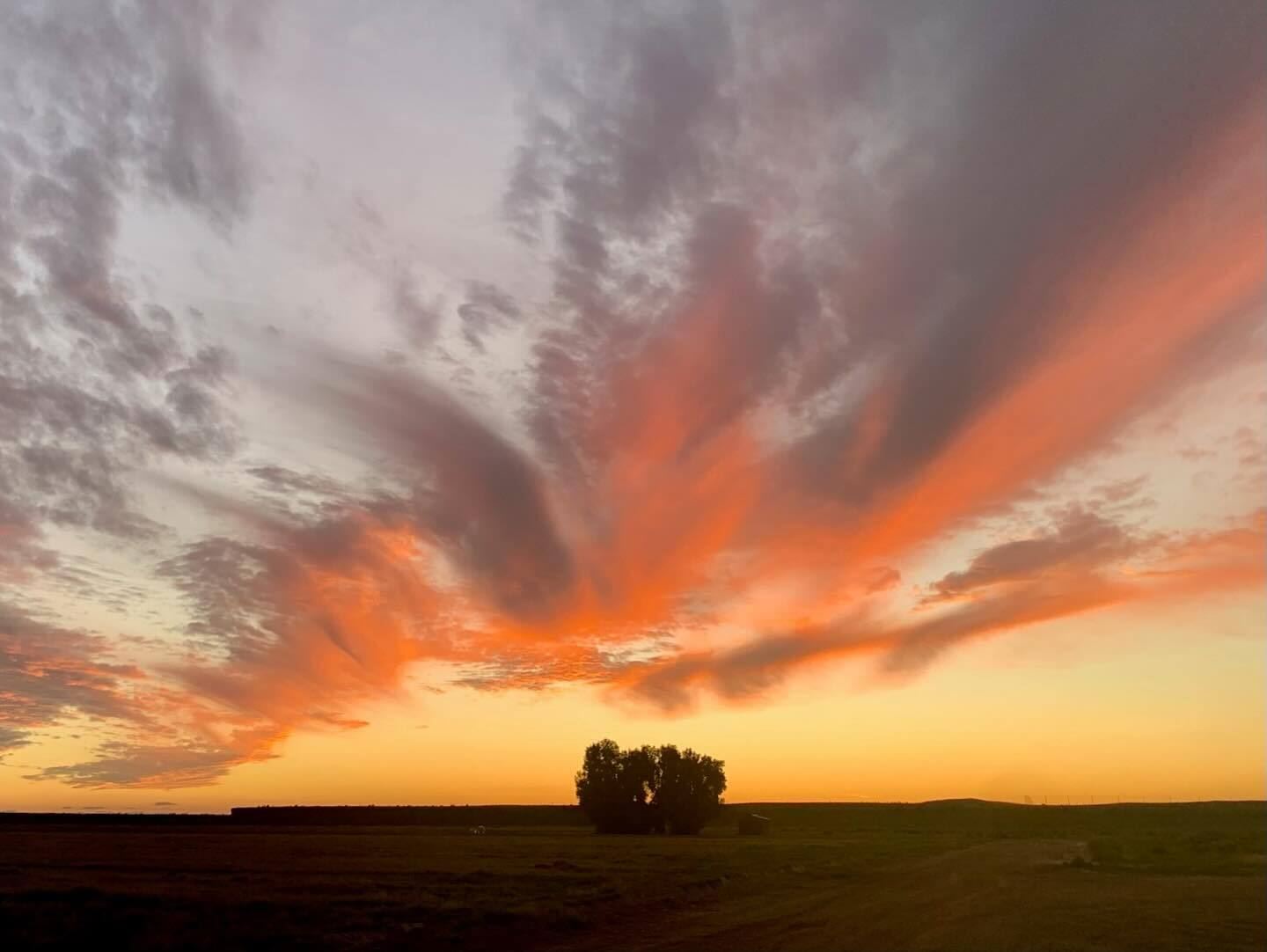
He tells the Guild that much of what's considered to be traditional farming practices, are really rooted in the Industrial Revolution, which is relatively recent compared to long held Indigenous cultivation practices.
"What we are doing right now is nothing new," Yadi said. "It's not new, it's not innovation. Traditional agriculture is how ancestors have always been doing things."
Oatman skips pesticides and herbicides, opting for cover crops and minimal machinery. Soil is prepared with low to no-tillage practices. The result? Better water retention, better nutrients, and overall, better biodiversity for the region.
The ecosystem approach extends beyond the farm, too. Oatman is working to fill smaller orders for up-and-coming bakers, who might not have the ability to take on the larger minimum wholesale orders.
Oatman recently received LFPA funding to bag their flour for distribution by local nonprofits, to those in nearby underserved communities and school districts.
"If we don't focus on our kids in the future, then we have no hope," Yadi said.
In 2022, he co-founded the Development of Regenerative Yields Cooperative, or Dry Co-Op for short. The goal is to make a for-profit marketing association cooperative that can function as a blueprint for other local food economies to apply to their own regional community needs.
Dry Co-op is about creating a traceable local food system and finding ways to share resources to sustain it. He pointed to Vital Farms' use of QR codes for consumers to learn which producer supplied the eggs.
"Are we honoring our producers that do the hardest work at a local level?" Yadi said, "Traceability and transparency are about allowing people to know where those things come from."
Learn more about Yadi Wang and his work with Oatman Farms, Oatman Flat Ranch, the DRY Co-op below.
Website: https://www.oatmanflatsranch.com
Instagram: https://www.instagram.com/oatmanfarms/
Dry Co-Op: https://dry.coop/home.html
Kiss the Ground Short Documentary on Yadi Wang and Oatman:
https://www.youtube.com/watch?v=URgdDWyv_ds
